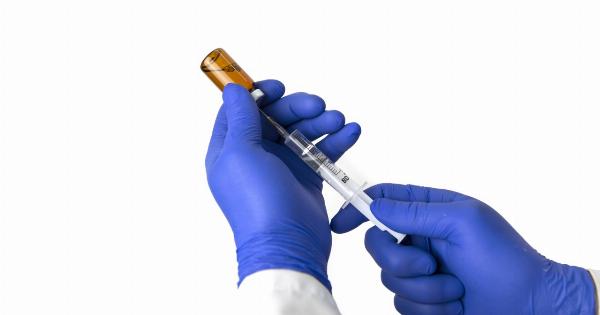Cushing Syndrome is a rare disorder that occurs when the body produces too much cortisol hormone.
Cortisol is a hormone that is produced by the adrenal glands and is involved in the regulation of many different physiological processes, including metabolism, immune response, and stress. When the body produces too much cortisol, it can have a range of negative effects on a person’s health, including an increased risk of developing diabetes.
Causes of Cushing’s Syndrome
There are several different potential causes of Cushing Syndrome. One of the most common causes is the use of corticosteroid medications. These medications are often used to treat inflammatory conditions such as asthma, rheumatoid arthritis, and lupus.
When these medications are used in high doses or for an extended period, they can cause the body to produce too much cortisol.
Other potential causes of Cushing’s Syndrome include:.
- Pituitary tumors
- Adrenal gland tumors
- Ectopic ACTH syndrome (a rare condition in which a tumor outside the pituitary gland causes the pituitary to produce too much ACTH hormone, which in turn causes the adrenal glands to produce too much cortisol)
- Familial Cushing Syndrome (a rare genetic condition that causes the body to produce too much cortisol)
Symptoms of Cushing’s Syndrome
The symptoms of Cushing’s Syndrome can vary depending on the underlying cause of the disorder and the severity of the condition. Some common symptoms include:.
- Weight gain, particularly around the abdomen and face
- Rounded, “moon-shaped” face
- Acne or other skin problems
- Hypertension (high blood pressure)
- Muscle weakness and atrophy
- Irregular periods in women
- Reduced libido and impotence in men
Link between Cushing’s Syndrome and Diabetes
One of the most significant risks associated with Cushing’s Syndrome is an increased risk of developing diabetes. This is partly because cortisol is involved in the regulation of glucose metabolism and insulin sensitivity.
When the body produces too much cortisol, it can lead to insulin resistance and impaired glucose tolerance.
Several studies have found a strong link between Cushing’s Syndrome and diabetes.
For example, a 2012 study published in the Journal of Clinical Endocrinology & Metabolism found that nearly half of all patients with Cushing’s Syndrome had diabetes or impaired glucose tolerance. Another study published in the same journal in 2016 found that patients with Cushing’s Syndrome had a higher prevalence of diabetes than the general population.
It’s worth noting that the link between Cushing’s Syndrome and diabetes is complex, and there are likely other factors at play.
For example, many people with Cushing’s Syndrome also have other conditions that are known to increase the risk of diabetes, such as obesity and hypertension.
Treatment for Cushing’s Syndrome and Diabetes
The treatment for Cushing’s Syndrome will depend on the underlying cause of the disorder. In some cases, simply discontinuing the use of corticosteroid medications will be enough to resolve the excess cortisol production.
In other cases, surgery may be necessary to remove a tumor from the pituitary or adrenal glands.
For people with diabetes caused by Cushing’s Syndrome, treatment will typically involve managing blood glucose levels through diet, exercise, and medications.
In some cases, weight loss can also be an effective way to manage blood sugar levels and reduce insulin resistance.
Preventing Cushing’s Syndrome and Diabetes
Because Cushing’s Syndrome is often caused by the use of corticosteroid medications, one of the best ways to prevent this condition is to use these medications only as directed by a healthcare provider.
This may mean avoiding long-term use of these medications or using alternative treatments when possible.
Beyond this, maintaining a healthy lifestyle that includes regular exercise, a balanced diet, and stress management can also help reduce the risk of Cushing’s Syndrome and diabetes.
Conclusion
Cushing’s Syndrome is a complex disorder that can have serious health consequences. In addition to the physical symptoms of the disorder, people with Cushing’s Syndrome are also at an increased risk of developing diabetes.
While there is no cure for Cushing’s Syndrome, it is possible to manage the symptoms and reduce the risk of complications through proper treatment and a healthy lifestyle.






























